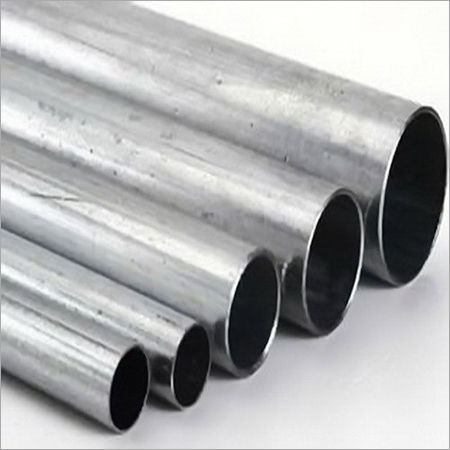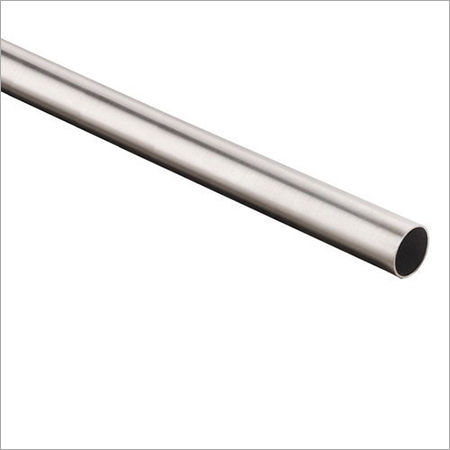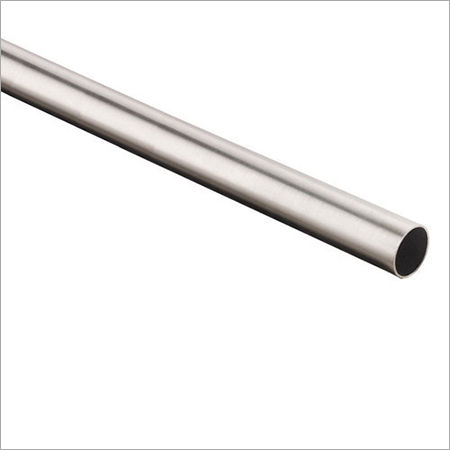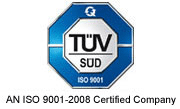Product Description
Round Titanium Tubes
Buy round titanium tubes from us to produce condenser tubing or components of heat exchanger, cryogenic vessel, airframe, to name a few. There are many applications of titanium tubes, thanks to the properties and characteristics inherited from titanium alloy. These tubes are resistant to corrosion, have great formability, ductility, high strength, low weight, good mechanical features & thermal properties. These tubes are designed to withstand extreme weather conditions and it can continue to function in extreme temperature ranges. Prior to the shipment, round titanium tubes undergo different tests, for instance sulfide stress corrosion cracking, hydrostatic and hydrogen induced cracking test.
Specification
|
Wall Thickness
|
4 - 8 mm
|
|
Single Piece Length
|
Upto 10 meter
|
|
Brand
|
Ketav
|
|
Material
|
Titanium
|
|
Application
|
Chemical Handling
|
|
Size/Diameter
|
1/2 - 4 inch
|
|
Shape
|
Round
|
Highly Durable and Corrosion-ResistantRound Titanium Tubes are renowned for their remarkable durability and corrosion resistance, even in harsh environments. Thanks to titaniums natural oxide layer and careful surface treatment, these tubes excel in demanding industrial applications. The hot rolled manufacturing technique further enhances structural integrity, providing you with extended service life and reduced maintenance costs.
Precision Engineering for Versatile ApplicationsThese tubes are meticulously engineered with a wall thickness of 48 millimeters and a diameter ranging from 1/2 to 4 inches, allowing for versatile use in diverse sectors including aerospace, marine, and chemical processing industries. The length of 10 meters facilitates flexible installation options, while the silver painted finish offers both aesthetics and added protection.
FAQs of Round Titanium Tubes:
Q: How are the round titanium tubes manufactured and what technique is used?
A: The round titanium tubes are produced using the hot rolled technique, which enhances their structural strength and uniformity. This process involves heating titanium billets and rolling them into the desired round shape, ensuring consistent wall thickness and diameter throughout the tube.
Q: What are the typical uses of these titanium tubes?
A: These titanium tubes are ideal for use in industries such as chemical processing, marine applications, aerospace structures, and high-performance engineering projects. Their corrosion resistance and high strength make them suitable for transporting reactive fluids, constructing frameworks, and other demanding tasks.
Q: When should I choose titanium tubes with a wall thickness between 4 and 8 millimeters?
A: Choosing a wall thickness of 4 to 8 millimeters is recommended when you require enhanced mechanical strength and durability, particularly for applications that encounter high pressure or corrosive environments. This specification helps maintain tube integrity over long service periods.
Q: Where can these round titanium tubes be supplied from and to which locations?
A: The tubes are available from our facility in India, and as an exporter, importer, manufacturer, service provider, and supplier, we deliver to both domestic locations across India and international markets on request.
Q: What is the advantage of the painted surface treatment on these titanium tubes?
A: The painted surface provides an additional protective layer against environmental factors, improving the tubes resistance to wear and corrosion while also enhancing its aesthetic appeal, especially in visible or open installations.
Q: How does the diameter range from 1/2 inch to 4 inches benefit different applications?
A: Offering a diameter range between 1/2 inch and 4 inches allows for compatibility with a variety of piping and structural specifications, enabling these tubes to be used in projects requiring both small and large flow capacities.
Q: What benefits do clients gain by sourcing titanium tubes from a supplier in India?
A: By sourcing from a supplier in India, clients benefit from cost-effective pricing, strict adherence to international quality standards, and flexible export or import arrangements, ensuring reliable supply chains for both small- and large-scale requirements.














